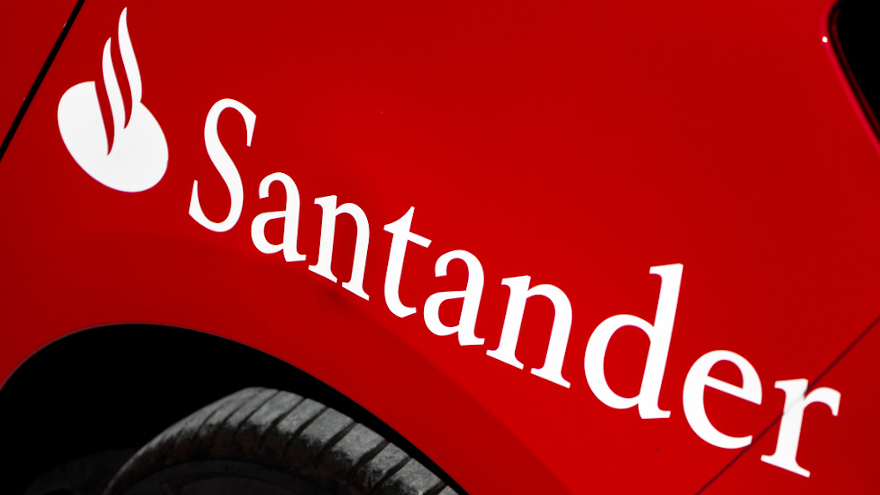SCUSA reaches $550M settlement with 33 states over subprime paper

Image by Manuel Esteban / Shutterstock.com.
By subscribing, you agree to receive communications from Auto Remarketing and our partners in accordance with our Privacy Policy. We may share your information with select partners and sponsors who may contact you about their products and services. You may unsubscribe at any time.
DALLAS –
On Tuesday, Santander Consumer USA Holdings finalized a voluntary settlement topping $550 million with 33 states and the District of Columbia that alleged that contracts that the finance company funded through certain dealers dating back to 2010 violated consumer protection laws because of the high risk that certain individuals would default.
Officials said SCUSA has also agreed to injunctive terms that they believe make important changes to its underwriting practices.
The complaint alleged that Santander violated law by approving contracts that it expected would default at rates of greater than 70%. Officials asserted that Santander exposed these consumers to “unnecessarily high levels of risk” through high loan-to-value ratios, significant back-end fees and high payment-to-income ratios.
The complaint also alleged that Santander’s aggressive pursuit of market share led it to underestimate the risk associated with these contracts “by turning a blind eye to dealer abuse.”
The complaint went on to allege Santander failed to meaningfully monitor dealer behavior to minimize the risk of receiving falsified information, such as the amounts specified for consumers’ incomes and expenses. These unfair origination practices caused loans to fail at an even higher rate than was expected, according to officials.
SCUSA offered this statement following the settlement announcement:
Subscribe to Auto Remarketing to stay informed and stay ahead.
By subscribing, you agree to receive communications from Auto Remarketing and our partners in accordance with our Privacy Policy. We may share your information with select partners and sponsors who may contact you about their products and services. You may unsubscribe at any time.
SC’s voluntary agreement with the attorneys general resolves a legacy underwriting issue stemming from an investigation that commenced in 2014, and is another key milestone in addressing issues related to that time period. We are pleased to put this matter behind us. Santander Consumer is fully reserved for this matter, and no additional charges will be taken in connection with the settlement. SC has fully cooperated with the attorneys general throughout the investigation, and the settlement has no material impact on SC’s or Santander US’ operations or our ability to serve customers.
SC is a responsible lender in a highly regulated environment. SC operates under large financial institution standards, which include rigorous risk, compliance and controls around lending and loan servicing. Over the last several years, we have strengthened our risk management across the board – improving our policies and procedures to identify and prevent dealer misconduct, and tightening standards to ensure affordability.
All of this important work helps SC remain competitive and well-positioned for future growth.
The settlement indicated consumers with the lowest quality paper who had defaulted as of Dec. 31 and have not had their vehicles repossessed will be allowed to keep their vehicle and have any deficiency balance (up to a total value of $45 million in deficiency waivers nationwide) waived.
The settlement also said Santander will also waive the deficiency balances for certain defaulted consumers across the country, with approximately $433 million in immediate forgiveness of contracts still owned by Santander, and additional deficiency waivers of paper that Santander no longer owns but is required to attempt to buy back.
Additionally, the settlement said Santander has agreed to injunctive provisions to make important changes to its underwriting practices. These provisions include:
— Require Santander to consider a consumer's ability to pay the loan on its specific terms
— Bar Santander from purchasing loans where consumers would likely have no money left over at the end of the month after accounting for monthly auto payments, housing costs and other debt obligations;
— Require Santander to compensate consumers who default within a certain number of months following origination, where circumstances indicate the loan was unaffordable at the time of origination;
— Prohibit Santander from requiring dealers to sell add-on "back-end" products to consumers such as vehicle service contracts and GAP insurance
— Mandate that Santander implement other controls, such as updated assumptions for default housing payments, dealer monitoring and consistent servicing practices.
The attorneys general from these locations participated in the settlement:
— Arizona
— Arkansas
— California
— Connecticut
— District of Columbia
— Florida
— Georgia
— Hawaii
— Illinois
— Indiana
— Iowa
— Kansas
— Kentucky
— Louisiana
— Maine
— Maryland
— Michigan
— Minnesota
— Nebraska
— New Hampshire
— New Jersey
— New Mexico
— New York
— North Carolina
— Oregon
— Pennsylvania
— Rhode Island
— South Carolina
— Tennessee
— Utah
— Virginia
— Washington
— West Virginia
— Wyoming
“Santander profited by approving high-cost loans to disadvantaged auto buyers who were doomed from the start. These predatory loan practices have hurt countless families who are being hit hard by today’s economic climate,” California attorney general Xavier Becerra said in a news release. “This settlement should be a warning to the industry that we are committed to protecting consumers from abusive business practices.”
The complaint is available on this website, and the stipulated judgment can be downloaded here.


